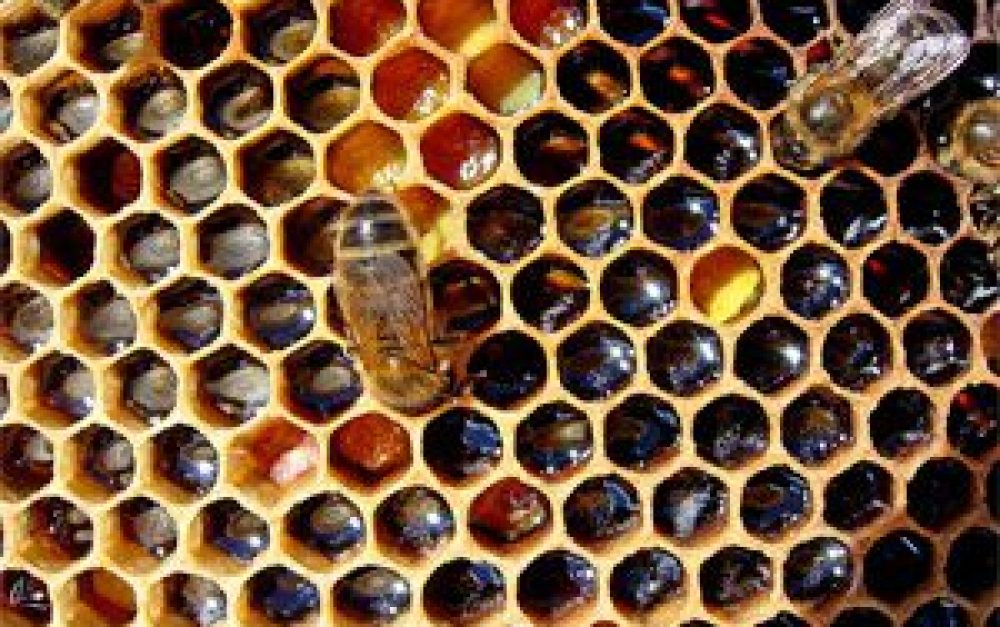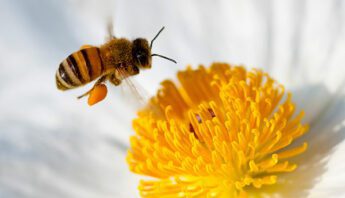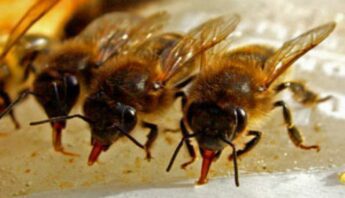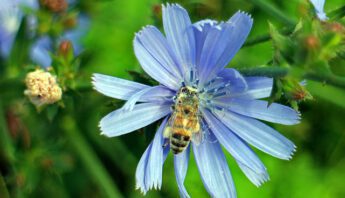Last week, Syngenta filed a legal challenge against the European Union's decision to suspend use of its pesticide, thiamethoxam. At the heart of the challenge? Syngenta says their product is wrongly accused of contributing to bee declines.
But the independent science detailing harm to bees from this and other pesticides is clear. And earlier this year, after reviewing the evidence for themselves, European policymakers determined that three widely used neonicotinoids — including thiamethoxam — pose a "high acute risk" to honey bees. Still, the pesticide corporation is protesting. Vehemently.
In a press release, Syngenta Chief Operating Officer John Atkin said the corporation has no choice but to take legal action "given our firm belief that the [European] Commission wrongly linked thiamethoxam to the decline in bee health." The corporation claims that the decision to suspend use of its product "breached EU pesticide legislation and incorrectly applied the precautionary principle."
Bayer filed a similar legal action last month in defense of its neonic products clothianidin and imidacloprid, also slated to be pulled off the European market before the end of the year.
Given that neonicotinoids are the most widely used class of insecticides in the world – with Bayer and Syngenta's products leading the market — it's not surprising these corporations are attempting to disrupt the EU ban. Still, the scientific evidence is clear and many studies point to neonics, alone and in combination with other pesticides, as a threat to bee health. As stated in The Guardian,
"Much new research has been done since these three neonicotinoids were approved for registration some years ago. And it shows very low levels of exposure to these pesticides compromises bees' immune systems, making them more susceptible to disease and viruses, and reducing their foraging and navigation behaviour."
The two-year neonic ban of thiamethoxam, clothianidin and imidacloprid is set to go into effect in December, but legal challenges from Bayer and Syngenta could slow the process — even if their cases are eventually tossed out.
Mounting evidence
The EU decision to suspend use of these three neonic products was prompted by a report from the European Food Safety Association (EFSA) issued earlier this year. The report concluded that thiamethoxam, clothianidin and imidacloprid pose an unacceptably high risk to bees, and that the industry-sponsored science upon which regulatory agencies' claims of safety have relied are fatally flawed.
PAN has been highlighting similar findings since 2010, when we publicized the "leaked memo" showing that the U.S. Environmental Protection Agency allowed Bayer's clothianidin to remain on the market despite the absence of any solid science demonstrating the chemical's safety for bees.
Last spring, PAN conducted our own evaluation of the state of the science on pesticides and bees and reached many of the same conclusions outlined in EFSA's comprehensive scientific review (see their full report). And the research linking neonics and other pesticides to bee declines is only getting stronger.
Beekeepers reported unprecedented colony losses this year of 40% or more. Along with other factors like habitat loss, pathogens and nutrition, pesticide exposure is clearly contributing to this disturbing trend. But if industry has its way, neonics will continue being widely used around the globe — a course of action bees simply can't afford.







